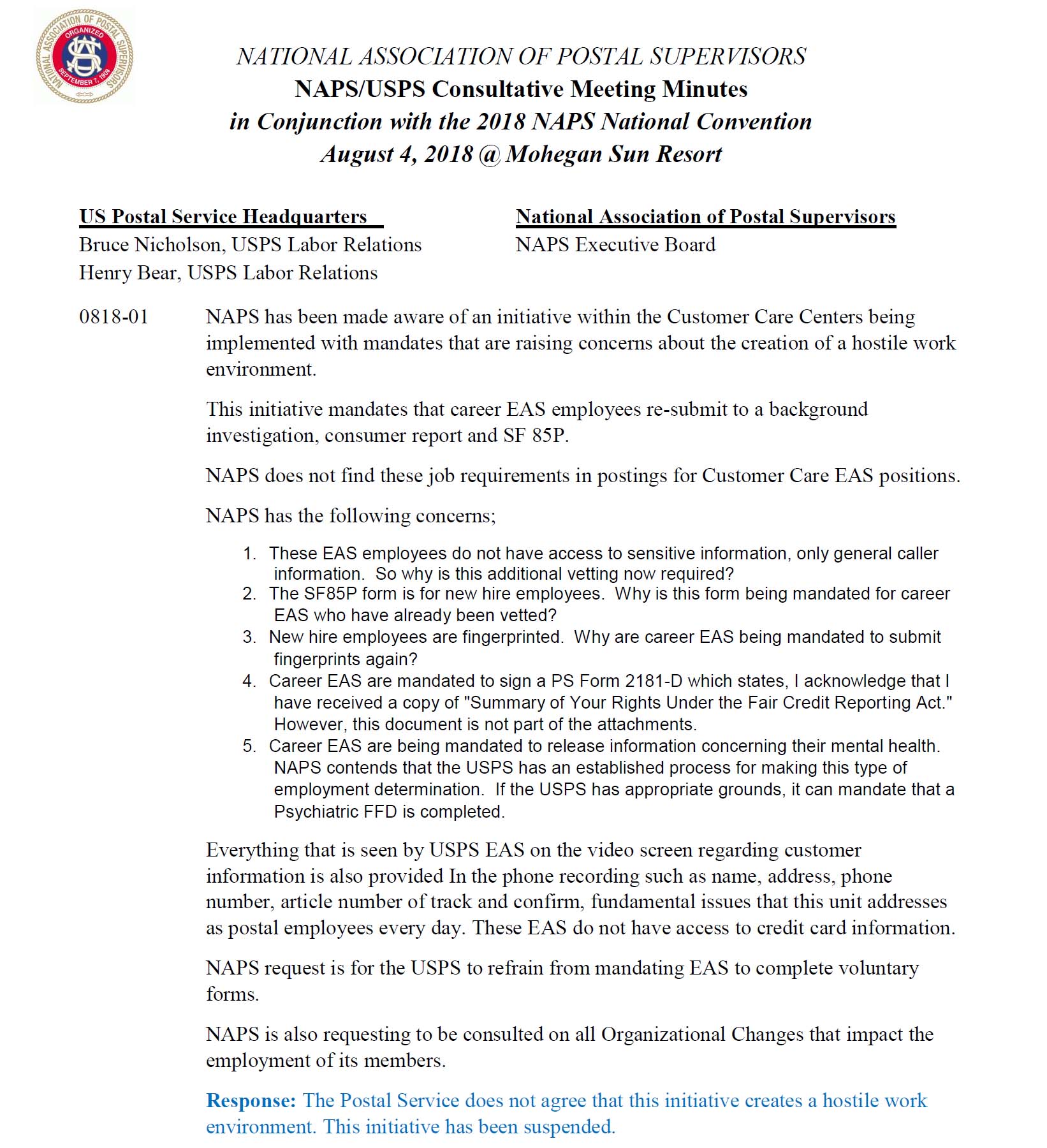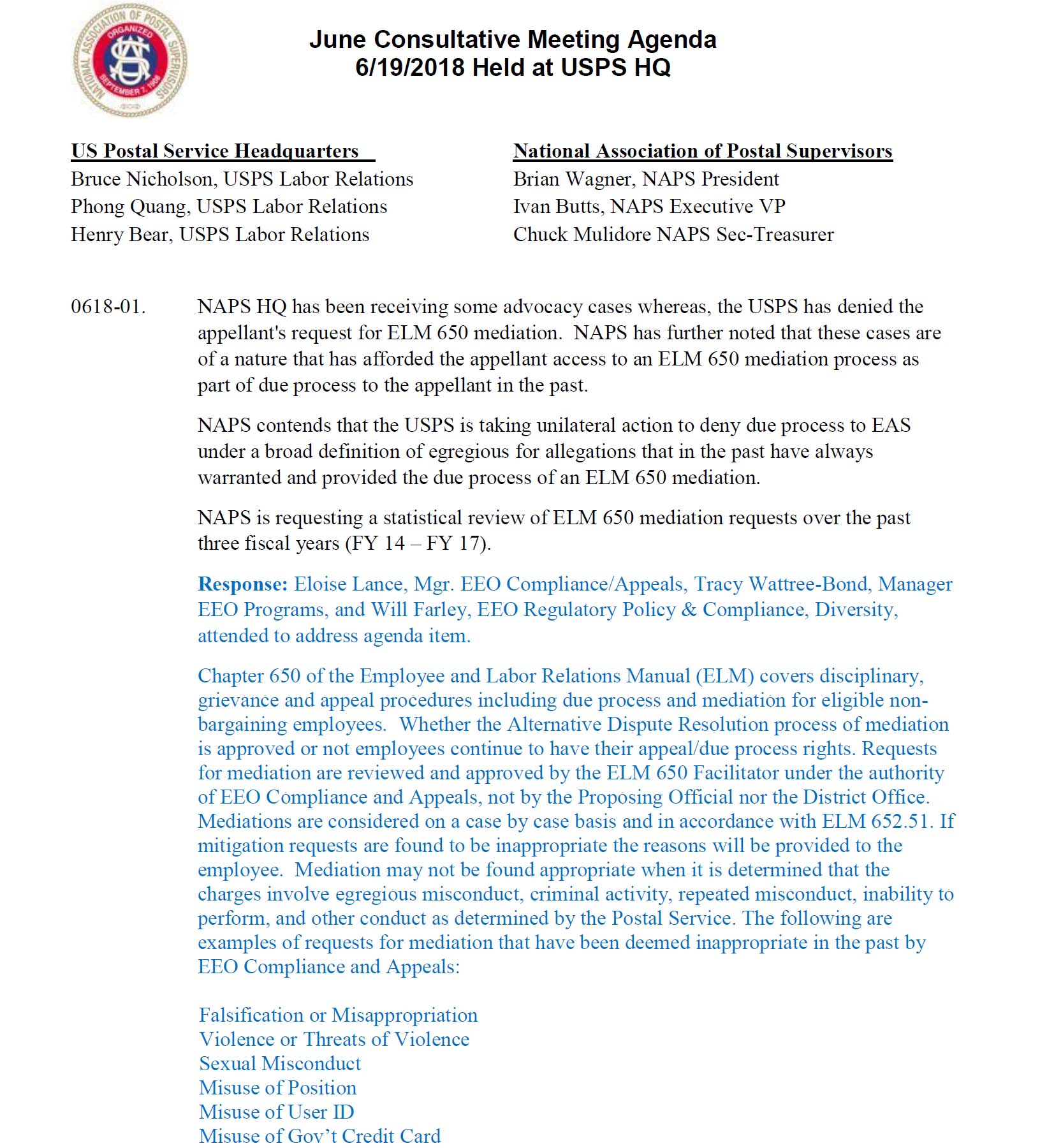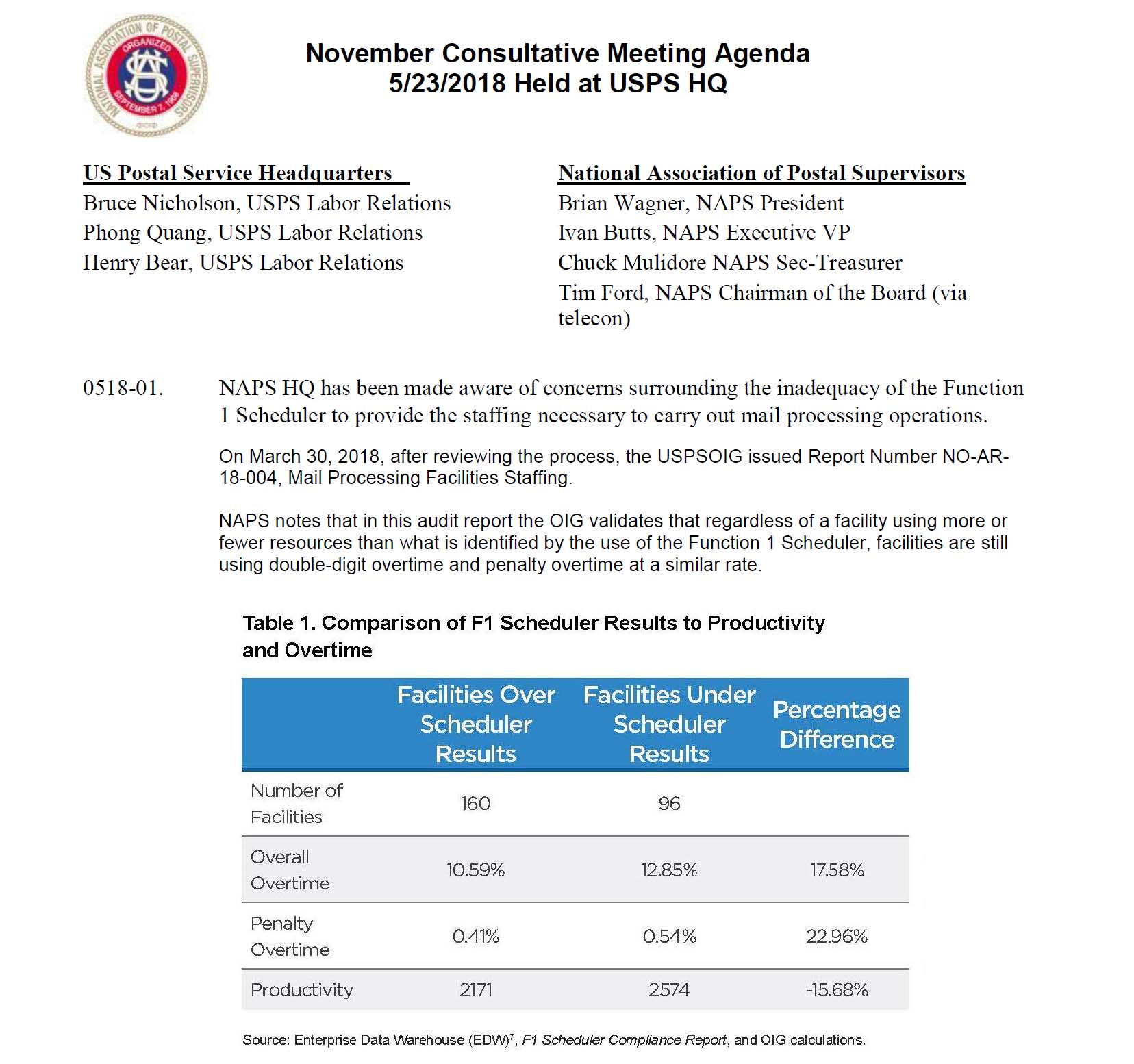Tommy Roma Making Annual Christmas Visit to President Vince Palladino’s Grave Site
- in Events

A VIEW FROM THE BRIDGE



On December 4, the President’s Task Force on the United States Postal System finally released its assessment and recommendations regarding changes to the United States Postal Service and the nation’s postal system. The report had been provided to the President back in August.
The 69-page document recommends a reformed USPS business model, with more cost efficiencies and a reduced universal service obligation, and added reliance on private competitors to meet the nation’s communication and commerce needs. The report favors the retention of the comprehensive USPS delivery network, but would loosen the delivery and mailbox monopolies and provide greater advantage to the Postal Service’s competitors.
The report’s 25 recommendations, 15 for implantation by the Postal Service and Postal Regulatory Commission, and the remainder for Congressional approval, do not call for privatization of the Postal Service but represents a glide path for transition to a privatized Postal Service. In that context, there are recommendations that are good, others that are bad and some that are ugly.
The Good
The Task Force recognized the reliance that rural America and outlying communities have on the U.S. Postal Service and the necessity of preservation of the comprehensive postal network without undermining its use to rural residents and businesses. The report also notes the 7 current vacancies on the Postal Board of Governors to exercise the Board’s important strategic planning and governance responsibilities. Also, the Task Force suggested that the Postal Service explore and implement new products and services that generate revenue, and co-locate complementary retail establishments within existing postal facilities. Finally, the Task Force suggested that the Postal Service’s retiree health liability be re-amortized and re-calculated using actuarial data limited to current retirees and employees near retirement, rather than all postal employees and retirees.
The Bad
There are also recommendations that are problematic. The Task Force urged the Postal Service to expand contracting-out postal operations, including retail service, mail acceptance and mail processing. And it recommended the pricing of competitive products, such as small parcels, bear a significantly larger portion of the Postal Service’s overhead costs, a view consistent with United Parcel Service’s agenda and the President’s view regarding Amazon. This recommendation sets the stage for a full frontal pricing assault on package shippers through pricing that captures the greater costs associated with financing of the Postal Service’s “Universal Service Obligation” (USO), capital expenditures and long-term liabilities. This new burden would result in escalating prices for parcels and items originating or delivered to rural and outlying areas. Also, the Task Force would restrict the scope of the USO to those postal products and services deemed to be “essential” versus types of mail and packages deemed “commercial” and without government protection.
The Ugly
Finally, there are recommendations that upend the Postal Service’s historic role as a government-reliant contributor to commerce and communication throughout the nation. The Task Force recommendation that delivery mail boxes be opened up to private-sector competitors through licensing agreements raises a host of policy, privacy and operational concerns, as does the conversion of more post offices into privatized contract units. The Task Force’s recommendation that the USO be narrowed and defined by the content of the mailed item and that access to a government-operated postal retail facility be limited raises concerns about the affordability and accessibility of the nation’s postal system. The Task Force’s recommendation that postal services be reduced, along with delivery days, disregards steadfast directives of Congress for decades. Similarly, the changes recommended by the Task Force in the Federal Retirement System, in which USPS employees participate, to increase employee contributions and to convert, where possible, to a defined contribution system would generate strong resistance in Congress.
NAPS will be working with Congress and postal policy-makers to help implement the good, but reject the bad and the ugly.
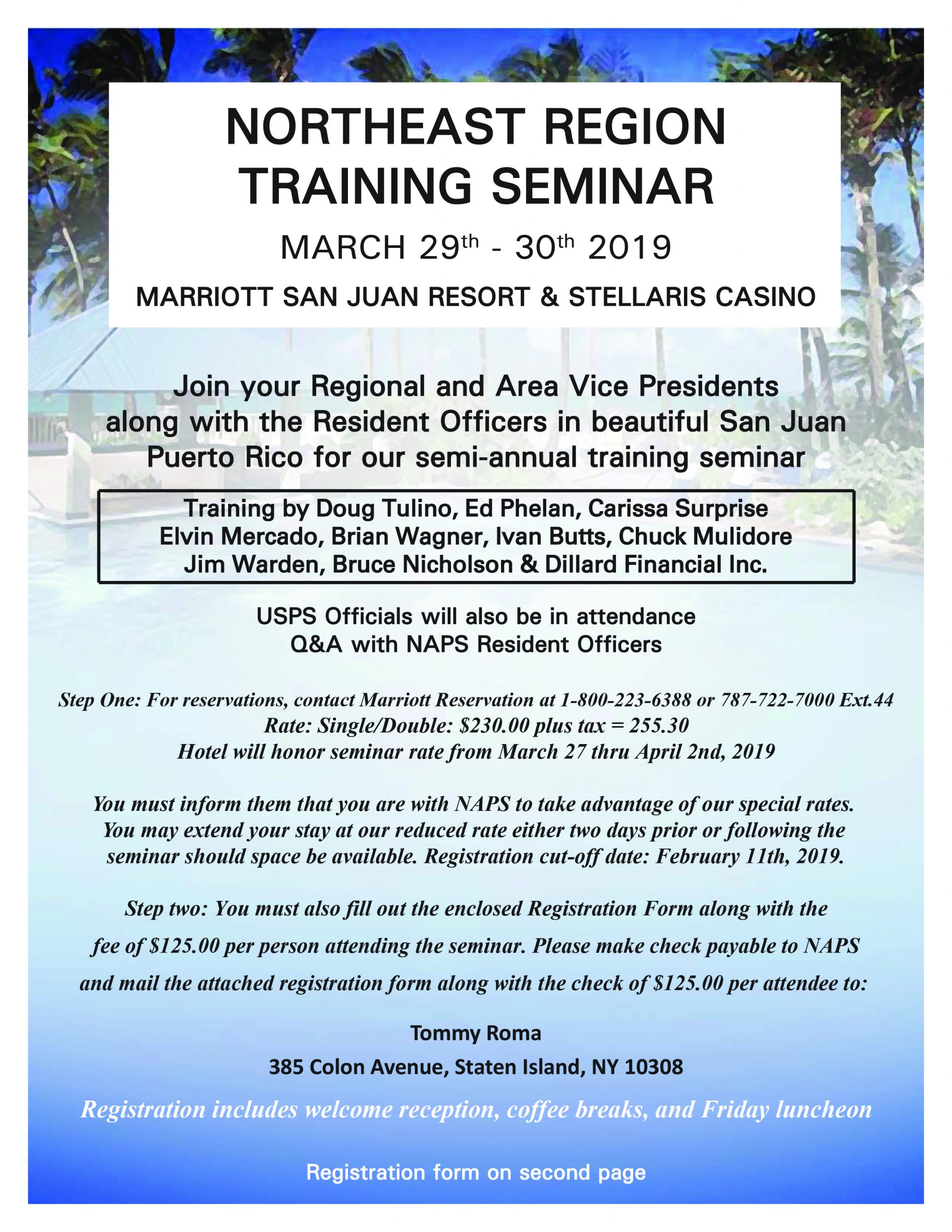
I have just returned from our 66th National Convention at Mohegan Sun Resorts in Uncasville, CT and can honestly say it was one of the best Conventions ever. I am also elated that the Northeast Area unanimously voted to return me as the Northeast Region V.P. for another term. This is a position I was made for and truly cherish. THANK YOU.
Our Executive Board voted to go to the fact finding process when we could not reach a new agreement with U.S.P.S. Everyone should remain professional and let the process take its course. I am proud to say that NAPS will always fight for its members to receive a fair and equitable pay package.
I was asked time and again at the convention what are officers from the other Management association doing at our convention for the entire time, they should attend the opening ceremonies, be acknowledged, make their speech and leave. This has always been past practice and should be adhered to. The same goes for our officers attending their convention.
President Trump releases Government reorganization plan which calls for privatizing USPS, NARFE reports. In fact, it calls for short term steps to put USPS on sustainable financial footing only to sell it to the highest bidder. This proposal came out before the President’s task force on the USPS issued any recommendations. The Postal Service is a National Treasure and should never be sold to private industry. NAPS opposes any efforts to privatize the Postal Service. The latest is the President will not release the findings of his committee until after the midterm elections, hoping for a Republican Congress who will favor his agenda. We must get out the vote to protect our interests.
The biggest question asked of me is will the other managements association acceptance of this pay package hurt us in fact finding. This question was asked at the convention only to have the chair rule the question was out of order. Why? My guess is the 2 presidents from the other association were sitting in on our business session. In my opinion the question was not out of order and the 2 presidents should have been asked to leave. Having gone through this process in the past you don’t have to be a rocket scientist to know the USPS lawyers will ask, if the pay package was good for this management association (UPMA) why is it not good enough for NAPS? Our lawyers will have their work cut out for them.
On a more favorable note we are going back to Puerto Rico, the dates are March 29th thru April 1, 2019 at the Marriott Resort and Stellaris Casino. The brochure will be out soon, if you have any intention of attending please book your room early as this seminar always sells out fast. Stay tuned.
The SWC’S process was moving along nicely. Please know that this process is time consuming and can’t be rushed. We are now in the process of trying out what we came up with in the Northeast, in all other area’s around the country. I was asked if the fact finding process with the USPS on pay could hurt the SWC’S process to which I answered, it should not but anything is possible. Jimmy & I, along with Ed Phelan, Doug Tulino, Carissa Surprise, and others have spent a lot of time and energy on this project and we hope to see it completed.
In closing I would like to wish the resident officers and executive board of NAPS all the luck in the world in the next 2 years and hope that dealing with the Trump agenda to privatize the Postal Service does not come to pass. Hope to see you all in Puerto Rico.
Stay Strong,
Tommy
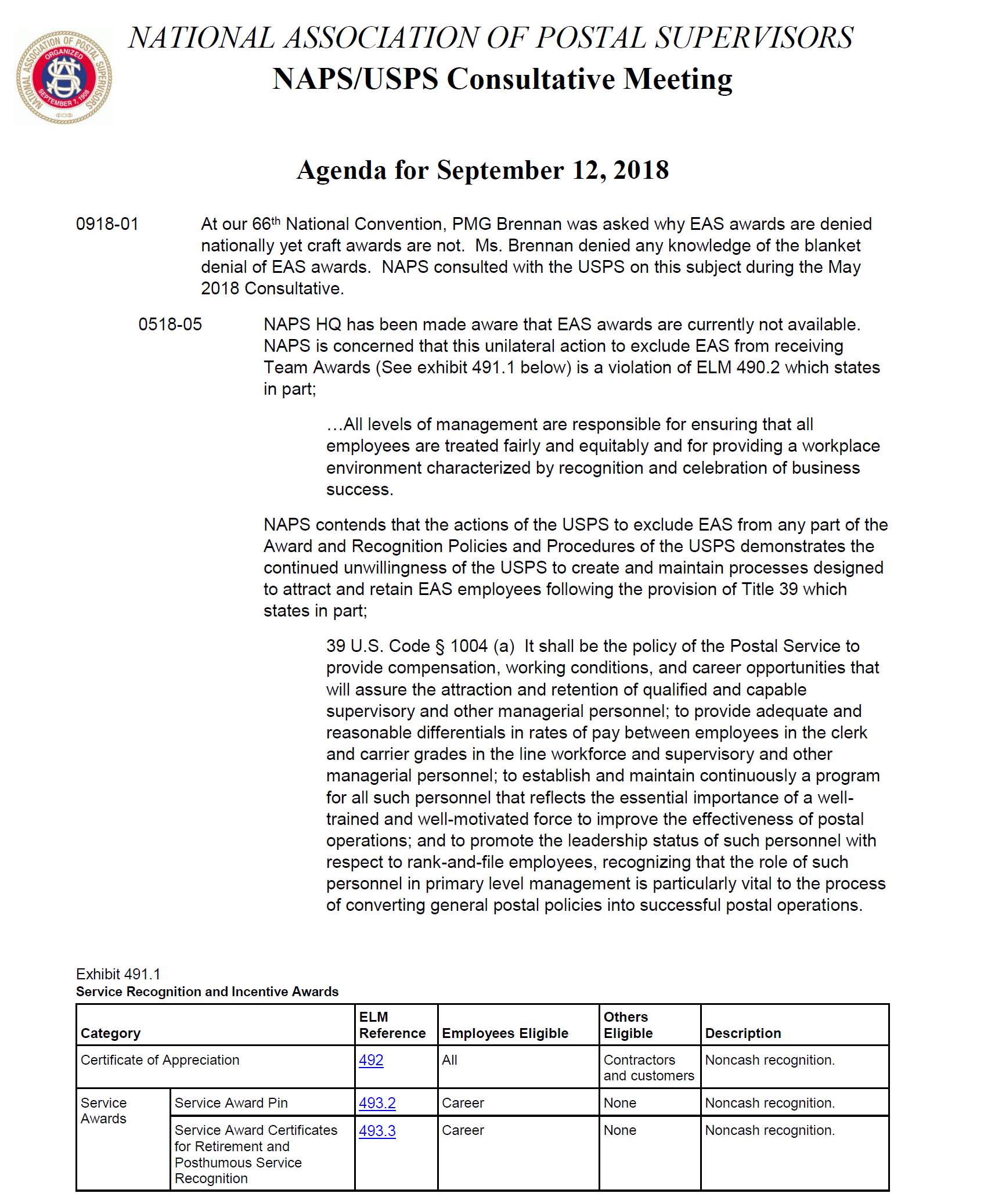

Click here for Full Consultative Meeting Agenda, EAS Awards, Work Climate Issue, Sales Workplace Assessment, and Local Operation Center (LOC) Detail Opportunity.
